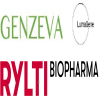This year's annual meeting of the American Society of Hematology got off to a slow start for some, as sudden snow in Atlanta snarled many conference goers' travel plans. But even wintry weather couldn't obscure the major strides reported by researchers for several cell and gene therapies that promise to alter how hemophilia and some blood cancers are treated.
BioMarin Pharmaceuticals Inc., one of the early "winners" of ASH, unveiled clinical data showing its gene replacement therapy almost entirely eliminated bleeding in patients with hemophilia A, boosting Factor VIII activity levels to normal or near-normal in 11 of 13 patients. And in an update to previously released findings, another experimental gene treatment from rival Spark Therapeutics Inc. showed similar promise in hemophilia B, a rarer form of the blood disorder.
An editorial from The New England Journal of Medicine perhaps put it most succintly: "A Cure for Hemophilia Within Reach." While there are important caveats to each early-stage study — not least of which being the small number of patients tested — the data reported at ASH seemingly brought that elusive goal closer to becoming reality.
Yet, for investors, BioMarin's impressive results made mixed data from Spark's gene therapy candidate in hemophilia A look all the more concerning, leading to a 35% slump in Spark's share price on Monday.

In leukemia and lymphoma, CAR-T cell therapy continued to gather momentum. Follow-up results from studies of Gilead Sciences Inc.'s Yescarta (axicabtagene ciloleucel) and Novartis AG's Kymriah (tisagenlecleucel) pointed toward lasting responses in 30% to 40% of patients, reinforcing the potential of CAR-T to be a one-time treatment for some.
Both CAR-T treatments are already approved, raising the bar for other companies seeking to enter the market. This seemed to be the reasoning behind a sell-off in shares of Juno Therapeutics Inc., which fell by more than 10% despite strong efficacy results from its CAR-T candidate in the same lymphoma indication as Yescarta.
While cell and gene therapies grabbed many of the headlines from ASH, targeted therapies from AbbVie Inc., Roche AG and Johnson & Johnson delivered potentially practice-changing results in multiple myeloma and chronic lymphocytic leukemia (CLL).
In a trial called MURANO, a combination of AbbVie and Roche's Venclexta (venetoclax) and Rituxan (rituximab) reduced the risk of disease worsening or death by 83% in patients with relapsed/refractory CLL, compared to a standard regimen of Ritxuan plus the chemotherapy bendamustine. Nearly 85% of patients receiving the Venclexta pairing survived for two years without diseaase progression, versus only 36% who received bendamustine.
The results are an important piece of AbbVie's strategy to build up use of Venclexta, strengthening its portfolio in blood cancers. For Roche, the good news was complemented by promising results from a pairing of its own candidate polatuzumab vedotin with bendamustine in diffuse large B-cell lymphoma.
For J&J, data highlighted in a late-breaking presentation showed that adding its anti-CD38 drug Darzalex (daratumumab) to a common combo regimen doubled progression-free survival in previously untreated patients with multiple myeloma who aren't eligible for transplant.
Put together, the clinical data showcase the broadening impact targeted therapies will continue to have in many hematological malignancies, even as CAR-T therapy seeks to change how those diseases are treated in the future.
Read on for a round-up of some of the biggest biotech and pharma news coming out of the conference.
-
BioMarin's gene therapy promises one-time treatment of hemophilia
Updated results from an early trial suggest an effective gene therapy for hemophilia A could be within reach. Read More >>
-
Benefit of Gilead's CAR-T remains durable over longer term
More than a year after infusion, 40% of patients treated with Yescarta showed no signs of lymphoma. Read More >>
-
Spark gene therapy falls behind BioMarin in hemophilia
Mixed data from the biotech's hemophilia A candidate disappointed investors primed by BioMarin's compelling results. Read More >>
-
Shire CEO: Hemophilia will remain a core business
Facing new competition from Roche, Shire will stay committed to defending its leadership position in hemophilia, company chief Flemming Ornskov says. Read More >>
-
Bluebird bio makes strides in CAR-T, gene therapy
New data on the biotech's multiple myeloma CAR-T therapy were particularly impressive, boosting investor confidence. Read More >>
-
J&J's Darzalex delivers combo win
Inserting the antibody into standard combo regimens is a key part of J&J's plan for expanding use of the drug into the frontline setting. Read More >>
-
Seattle Genetics sees market opportunity in cancer combo success
Replacing a toxic chemo agent could make Adcetris a new standard therapy to treat frontline Hodgkin lymphoma. Read More >>
-
Argenx shares pop on autoimmune data
In a busy day, Argenx shares rose by more than 80% on positive topline results at ASH, leading the biotech to announce a proposed U.S. public offering. Read More >>














